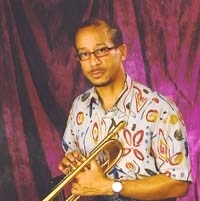Patients speak about prostate cancer and laparoscopic radical prostatectomy

Mark St Cyr, MD, New Orleans, Louisiana
A young doctor with no prostate cancer symptoms checks his PSA prostate cancer test, has a prostate biopsy, and is diagnosed with Gleason score 6 prostate cancer.
***
On March 6, 2005, I began work as a hospitalist at the VA Medical Center. Previously, I had worked as a private internist. I had been making rounds at four hospitals and four nursing homes and also seeing office patients Monday through Friday. Typically, I would work twelve to sixteen hours a day and take call five days a week and every fourth weekend.
When I was hired as a hospitalist, seeing only inpatients, I actually got a lot of sleep the first three days. I had not realized how stressful it was running a private practice until I stepped out of it. Things seemed under control for the first time in a long time.No sooner than I thought things were under control and I felt rested and energetic, my biggest problem arose.
On March 10, 2005, when I had my new employment physical, I requested to have my PSA prostate specific antigen level, along with the other routine tests. I was not having symptoms of prostate cancer but I knew that the recommendation was yearly if Black and over 40. I had tested myself in January of 2003 and September, 2004 and my levels had been 3.4 and 3.5 ng/ml, respectively. Because there were less than 4.0 and I was not symptomatic, I assumed I was alright. [PSAs between 2.5 and 4.0 ng/ml carry a risk of a positive prostate biopsy of approximately 25%]. At that time, I was not aware of age-adjusted PSA levels.
My new PSA, done on March 10, 2005, was 4.2 ng/ml. I was not alarmed because I was too caught up in my new job. I finally spoke with a urologist at work, who then referred me to a to a urologist in the private sector. On Friday, April 22, 2005, I had a six-core prostate biopsy and I was diagnosed with a Gleason score 6 prostate cancer.
I was notified of my diagnosis at 6:30 PM on a Friday. It was April, 29, 2005, Duke Ellington's birthday. The sun may have been shining outside, but inside a storm was raging. I was taken by surprise, not believing that a 44-year old doctor with no prostate cancer symptoms could have prostate cancer.
It took me a while before I could say the word "cancer," as initially I was devastated. I was depressed. My period of depression lasted about forty-eight hours and began to subside as I educated myself about what my options were. My urologist had recommended I have surgery, but he suggested that I find a specialist in the field.
Through a wide search, I found Dr. Krongrad. I emailed him and, much to my surprise but to his credit, he emailed me back the same night. Over the next week, I was in contact with Dr. Krongrad's staff, all of whom were very helpful and genuinely concerned about me. I did not receive "special treatment" because I was a doctor. The care the Dr. Krongrad and his staff provide, simply put, is consistently special and given to all their patients, which I witnessed first hand.
As a doctor, I know that experience counts. I am thankful to those patients who have undergone laparoscopic radical prostatectomy before me. I chose Dr. Krongrad because I realized that with as much experience as he has acquired, that his hands have developed what in music we call "muscle memory." In soccer, one would say he has a good touch. With his ability to also convert to open prostate cancer surgery, an operation he had done countless times also, I was reassured and convinced.
I flew to Aventura on June 6, 2005. I met Dr. Krongrad and his staff on June 7, 2005 and had my LRP on June 8, 2005. Post operatively, I remained active, walking the halls. I found that I wanted the nurse with me at first, but that my endurance and independence quickly returned.
I was discharged from the hospital the following morning. A day later, I went to see Dr. Krongrad for a followup before a flight home to New Orleans on June 10, 2005.
I returned to work without incident just twelve days after my LRP. I found that my strength returned gradually and that I really benefited from afternoon naps initially. I returned to jogging one month after the LRP and was running by six weeks. I have had good bladder control since three to four weeks. The only time I leak is when I cough or sneeze. I wear a small pad in my underwear just for safety. I have full sensation in my groin. My PSA at eight weeks after the LRP is 0.02 ng/ml.
As a patient and as a physician, I found that Dr. Krongrad is calm and compassionate. Dr. Krongrad is obviously confident in his abilities, which reflects is vast experience. I noted also that, while Dr. Krongrad does not directly employ everyone you meet at the hospital, he has a way of using all of them as a member of a big team to achieve one goal: the best care for his patient. The nurses know that you are Dr. Krongrad's patient and they show it by their attentive and disciplined behavior. What results is a very positive feeling for the nurse and for the patient, a sense that what is happening is special, good, and right.
I am very satisfied with my adventure in Aventura.


